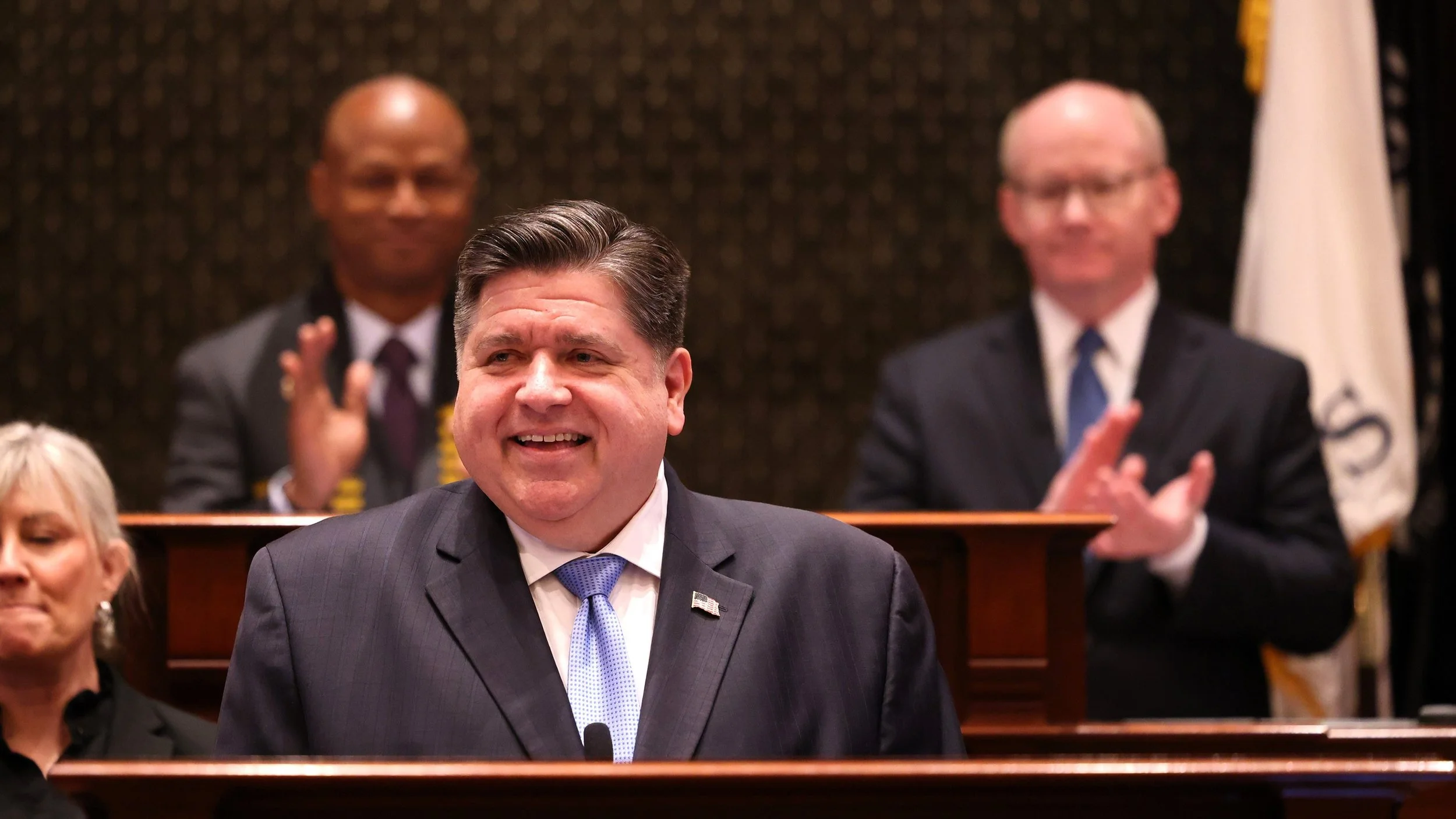There's a Budget Proposal. Now the Hard Part Begins
Governor JB Pritzker is applauded at the beginning of his annual State of the State and Budget address Wednesday in Springfield. (Photo: Chicago Tribune)
NOTE: This story was originally posted for subscribers only. To receive subscriber-only newsletters and content, click here.
OPINION
No matter your political persuasion, Governor JB Pritzker’s FY26 budget proposal, introduced Wednesday, is a mixed bag.
If you’re a conservative, you’re apoplectic the Governor’s own Office of Management and Budget preached of a $3-plus billion budget deficit since November and, seemingly magically, things are just fine to increase spending by $2 billion without a tax hike. (Not to mention some of the governor’s rhetoric, which we’ll get to.)
If you’re a progressive, you’re pretty upset that the Governor seemingly wants to shutdown any of the brilliant progressive ideas to expand government and spend more money that we don’t have.
"If you come to the table looking to spend more, I’m going to ask you where you want to cut,” Pritzker said during his 35 minute address.
Add that Pritzker is proposing zeroing out a $400 million line item for a Medicaid-style health insurance plan for illegal/undocumented immigrants (I’m using both terms because someone always gets angry if I choose one of the descriptors.)
That proposal may be Pritzker’s toughest challenge keeping legislators from his party, specifically from the Latino Caucus, on board with a final spending plan in May.
“By prioritizing investments that support the needs of our community we are standing our ground to strive toward an environment where every individual has the opportunity to thrive in our state,” said Sen. Karina Villa (D-West Chicago). “This is a sentiment we not only hold for education but also for other critical services that contribute to the well-being of our community especially health care programs that provide services to immigrant adults and seniors like HBIA and HBIS.”
The Legislative Black Caucus also issued some pretty angry statements following the speech, too.
Add the fact that the handful of moderates, especially in the House, that nearly tanked the budget last spring are continuing to clamor for cuts, certainly more than we’re seeing in this budget proposal, and you can already see just how hard it’s going to be to get Democrats together on a final spending plan.
John Boehner once called keeping his conference together in Washington as “keeping 218 frogs in a wheelbarrow.” Speaker Welch’s conundrum is more like keeping 78 feral cats in a box.
Republicans have been smacking Governor Pritzker and Democrats around for months, maybe years now, over the amount of spending the state directs toward those illegal/undocumented immigrants. While one would think cutting this nearly half-billion expense would placate some of them, I’m sure you’ll still hear from the GOP that Pritzker should still be cutting more, even though asylum seeking migrant spending has nearly crawled to a stop. They’ll surely continue to complain about the health benefits for seniors, but it’s a lot harder to get the public fired up over someone’s abuela receiving cancer treatments.
There are many unknowns between now and May, as well. We don’t know what revenues will look like by May, especially if they’ve fluctuated this month between November and February.
There’s also the potential of major cuts to Medicaid by the federal government. If Congress cuts funding for Medicaid expansions that have been enacted in the state, you’re talking about 900,000 people that would automatically be kicked off the Medicaid rolls. There’s bipartisan concern about the impact that would have on low-income individuals in all corners of the state.
Democrats should include Republicans in conversations about how to reform spending in this state and begin to craft real, grown up solutions to the structural issues facing our state.
Instead, it looks like Democrats are going to keep fighting themselves, and who knows how that will turn out by the end of May…or later.



